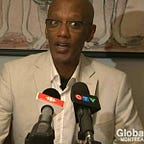Power is great when used to build things — but terrible when rulers become addicted to it. Rwanda unfortunately is a peculiar case whereby every ruler who sits in the presidential chair becomes addicted to power to the very end of their lives. That is why, evidently, Rwanda is a graveyard of power-addicted rulers. It is the Kagames’ turn to become addicted to power and God-knows-how it will all end. In power since 1994, Kagame whose family is also deeply entrenched into politics, is ready to rule until 2034 — that is 40 years. Or so he hopes. But a week in politics is a very long time, as British Prime Minister Harold Wilson put it.
You see, Kagame is not the first or probably the last Rwandan dictator to become addicted to power.
In post-independence Rwanda, President Grégoire Kayibanda who rose to power after the Rwandan monarchy was dissolved in 1961, was the first ruler to suffer addiction. Over the next three years, Kayibanda increased his power step by step. By 1965, his Parmehutu party was the only legal party in the country. At elections held that year, Kayibanda appeared alone on the ballot for president. He was re-elected in 1969, again as the only candidate. He then changed the constitution to stay in power — but events went differently. On July 5, 1973, Kayibanda’s defense minister Major General Juvénal Habyarimana overthrew him in a military coup. Officials, lawyers or businessmen close to the Kayibanda regime were executed. Kayibanda and his wife were held in a secret location, said to be a house near Kabgayi, where they were reportedly starved to death.
And then came Habyarimana regime. Before Kagame, Habyarimana held the presidency the longest from 1973 until 1994. He was nicknamed “Kinani”, meaning “invincible”. Like Kayibanda before him, Habyarimana “won” unopposed re-elections — by 98.99% in 1978, by 99.97% in 1983, and by 99.98% in 1988. His ruling MRND-party enforcers required all Rwandans to chant and dance in adulation of the President at mass pageants of political “animation”.
All that power crashed from the sky — literally. On April 6, 1994, Habyarimana’s jet was shot down near Kigali airport, wiping him out, alongside the Burundian head of state and Rwandan army chief of staff.
George Seldes, a great American newsman, who, for over several decades, challenged the powerful in his homeland, the United States and overseas, put together quotes about power that Rwandans might find interesting as they reflect on own situation. Here are ”The Great Quotations and The Great Thoughts” compiled by the great George Seldes:
“Power is sweet; it is a drug, the desire for which increases with habit (Bertrand Russell, 1951).”
“Real politics is the possession and distribution of power (Benjamin Disraeli, 1804–1881).”
“Many addictions can be far more dangerous than addiction to drugs. The addiction to power … (M. Scott Peck, 1993).”
“Unlimited power is apt to corrupt the minds of those who possess it (William Pitt, 1770)”
“Power tends to corrupt, and absolute power corrupts absolutely (Lord Acton, 1887).”
“The enjoyment of power inevitably corrupts the judgments of reason and perverts its liberty (Immanuel Kant, ca. 1800).”
“I see that power intoxicates men (Camille Desmoulins, 1794).”
“Power buries those who wield it (Talmud).”
“There is no stronger test of a man’s character than power and authority, exciting as they do every passion and discovering every latent vice (Plutarch, 46–120 A.D.)”
“For he that thinks absolute power purifies men’s blood, and corrects the basis of human nature need read but the history of this, or any age, to be convinced to the contrary (John Locke, 1690).”
“Arbitrary power is the natural object of temptation to a prince, as wine and women to a young fellow, or a bribe to a judge, or avarice to old age… (Jonathan Swift, 1706).”
“An honest private man often grows cruel and abandoned when converted into an absolute prince. Give a man a power of doing what he pleases with impunity, you extinguish his fear, and consequently overturn in him one of the great pillars of morality (Joseph Addison, 1672–1719).”
“Craving for power is not a vice of the body, consequently it knows none of the limitations imposed by a tired or satiated physiology upon gluttony, intemperance and lust (Aldous Huxley, 1940).”
“I put for a general inclination of all mankind, a perpetual and restless desire of power after power, that ceaseth only in death (Thomas Hobbes, 1651).”
“Anyone entrusted with power will abuse it if not also animated with love and truth and virtue, no matter whether he be a prince, or one of the people (Jean de la Fontaine, 1668).”
“Constant experience shows us that every man invested with power is apt to abuse it and to carry authority as far as it will go (Baron Charles Montesquieu, 1748).”
“The hand entrusted with power becomes, either from human depravity or esprit de corps, the necessary enemy of the people (Wendell Phillips, 1832).”
“Titles are tinsel, power a corruptor, glory a bubble, and excessive wealth a libel on its possessor (Percy Bysshe Shelley, 1812).”
“In order to understand the system in which we live and help move it toward recovery, the time has come to admit, without reservation, that it is an addict and functions on a societal level the same way as any decompensating or deteriorating drunk (Dr. Anne Wilson Schaef, 1987).”
“Those who have once been intoxicated with power, and have derived any kind of emolument from it, even though but for one year, can never willingly abandon it (Edmund Burke, 1727–1797).”
